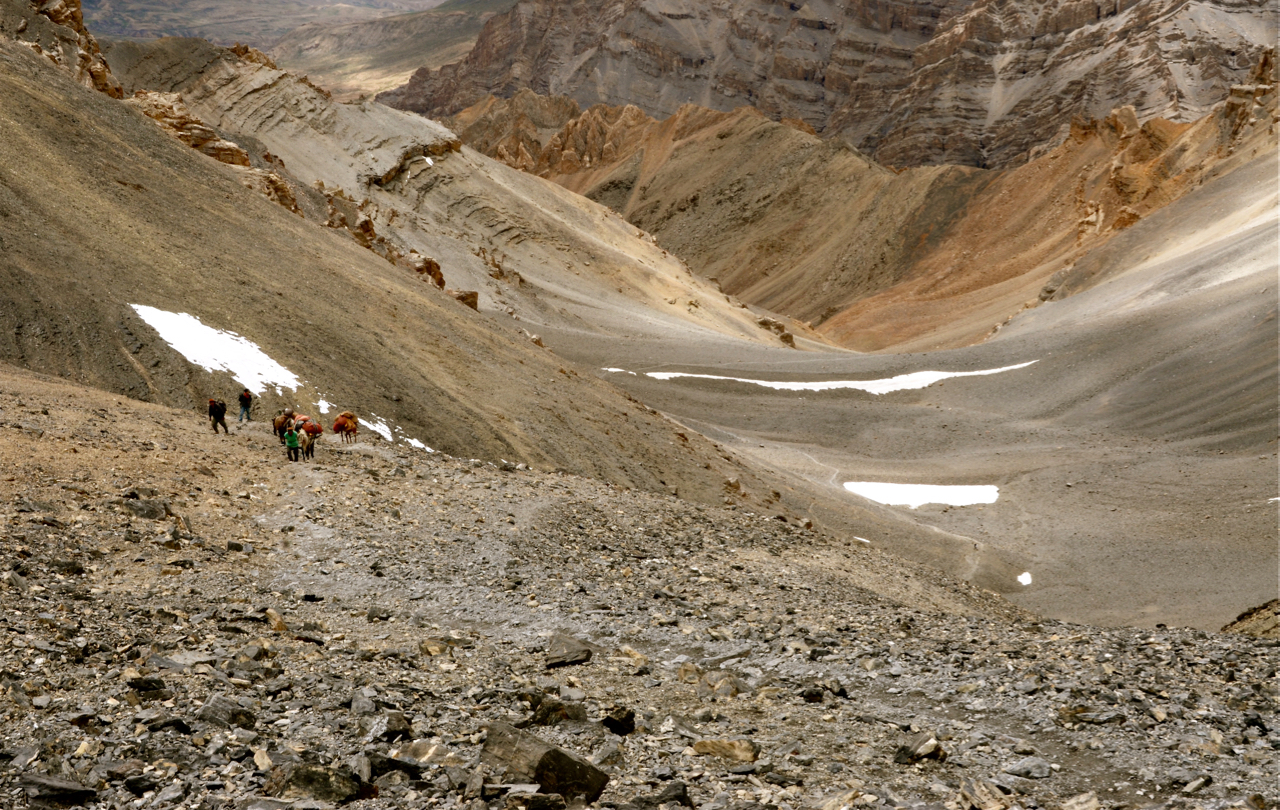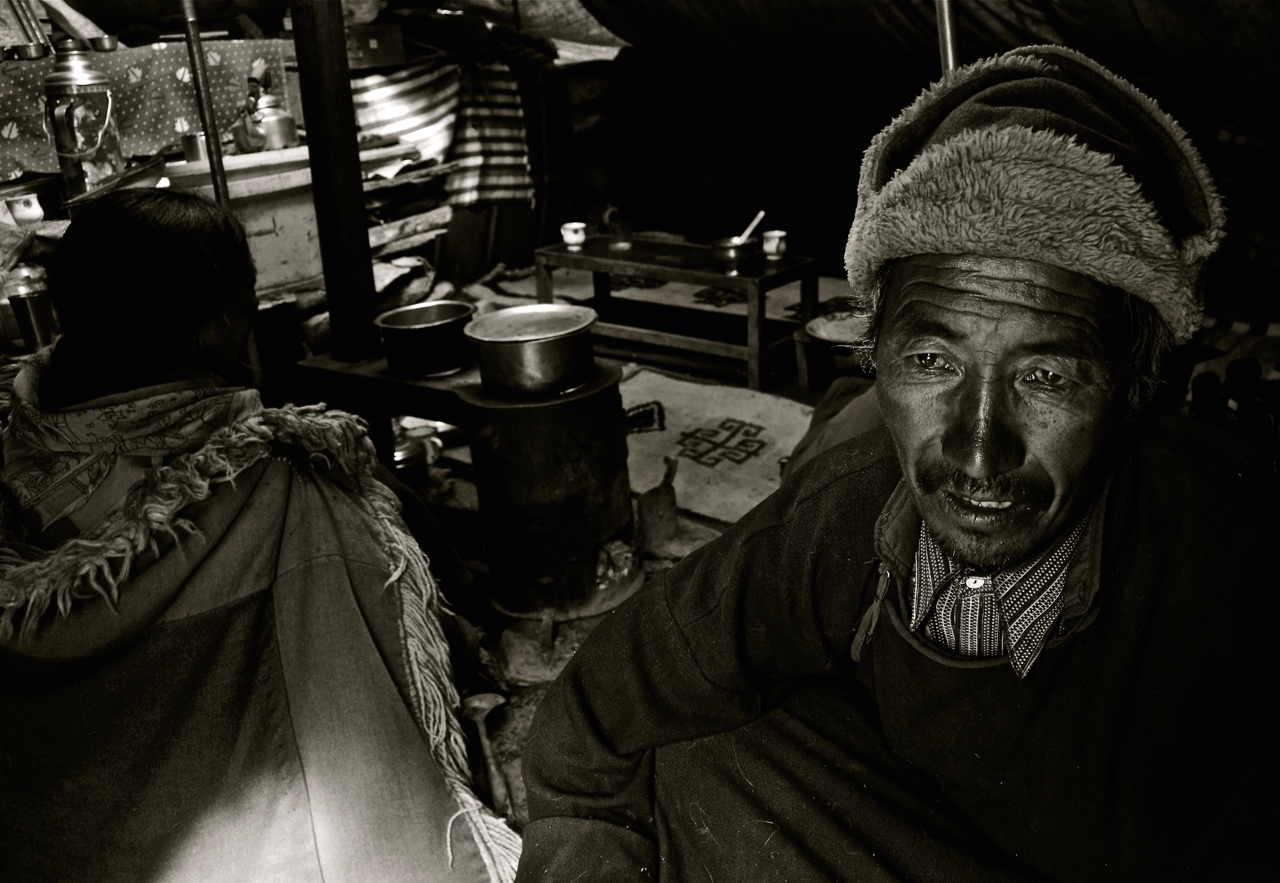Outpost Magazine just revisited a story I wrote about a series of trade routes that brought Pashmina wool from high in the Himalayas down into the market towns. Story is here.

A portion of a trade route that linked Ladakh’s corridors with regions further south. Pashmina, salt, and anything with value that could be packed was hauled along the route.
Along with salt, resin, and of course that wonderful stimulant fuel, tea, Pashmina was another of the commodities that allowed nomads and remote communities some autonomy.

Within the tent of a Karnak nomad, time speaking about Pashmina over tea with the headman
One of the great sources of Pashmina were two nomadic groups of Tibetans, the Rupshu and the Karnak.

About JeffFuchs
Bio
Having lived for most of the past decade in Asia, Fuchs’ work has centered on indigenous mountain cultures, oral histories with an obsessive interest in tea. His photos and stories have appeared on three continents in award-winning publications Kyoto Journal, TRVL, and Outpost Magazine, as well as The Spanish Expedition Society, The Earth, Silkroad Foundation, The China Post Newspaper, The Toronto Star, The South China Morning Post and Traveler amongst others. Various pieces of his work are part of private collections in Europe, North America and Asia and he serves as the Asian Editor at Large for Canada’s award-winning Outpost magazine.
Fuchs is the Wild China Explorer of the Year for 2011 for sustainable exploration of the Himalayan Trade Routes. He recently completed a month long expedition a previously undocumented ancient nomadic salt route at 4,000 metres becoming the first westerner to travel the Tsa’lam ‘salt road’ through Qinghai.
Fuchs has written on indigenous perspectives for UNESCO, and has having consulted for National Geographic. Fuchs is a member of the fabled Explorers Club, which supports sustainable exploration and research.
Jeff has worked with schools and universities, giving talks on both the importance of oral traditions, tea and mountain cultures. He has spoken to the prestigious Spanish Geographic Society in Madrid on culture and trade through the Himalayas and his sold out talk at the Museum of Nature in Canada focused on the enduring importance of oral narratives and the Himalayan trade routes.
His recently released book ‘The Ancient Tea Horse Road’ (Penguin-Viking Publishers) details his 8-month groundbreaking journey traveling and chronicling one of the world’s great trade routes, The Tea Horse Road. Fuchs is the first westerner to have completed the entire route stretching almost six thousand kilometers through the Himalayas a dozen cultures.
He makes his home in ‘Shangrila’, northwestern Yunnan upon the eastern extension of the Himalayan range where tea and mountains abound; and where he leads expeditions the award winning ‘Tea Horse Road Journey’ with Wild China along portions of the Ancient Tea Horse Road.
To keep fueled up for life Fuchs co-founded JalamTeas which keeps him deep in the green while high in the hills.



Hello Jeff-
Many thanks for the link to the article in Outpost. It provided some different (and wonderful) photos than in the original entry here on your blog (also filled with super images). I was hoping to see a photo of the bharal. When their stately, magical passing by your convoy occurred, you did not have a camera at the ready? Or maybe such a photo just didn’t turn out as one had hoped? Good thing your adept written description brings forth something of their essence.
I continue to appreciate your work and the Jalam teas!
Snow & Blow Spring Greetings from the Manitoulin!
Lynne
Good to ‘hear’ from you Lynne. Many shots of the Bharal, which I’ll send to your email address. So good to read that the teas are still pleasing. This month’s Purple Leaf is something special and look forward to your thoughts on it. Best to you from Big Island Hawaii where it pours rather than blows. -Jeff